Anne Boleyn’s Execution: The Surprising Truth
This post contains some affiliate links
How does the run-up to 19 May and the execution of Anne Boleyn make you feel? Having celebrated the joyful anniversary of her proclamation as queen at Greenwich on Easter day in 1533, the mood turns. Those of us loyal to this most courageous of women are plunged into sadness as the countdown begins to her execution.
The betrayal and bitter sadness of it all weighs heavy. We think of Anne’s desperation, terror and grief at being parted from everything and everyone who mattered to her. How alone she must have felt! But is this the whole story? Maybe not…Maybe there is a glimmer of hope in among the tragedy. The following may well be the surprising truth about her last moments. It is a story of hope, and in the run-up to the annual anniversary of the execution of Anne Boleyn, perhaps it might prompt us to think of her differently in those last few days and hours of her life.

‘Never had the queen looked so beautiful…’
There has always been something that has intrigued me about Anne’s final hours in this world – her incredible courage and profound serenity in the face of her imminent oblivion. It is almost impossible to imagine the sheer terror, the desolation and the sense of utter betrayal that she must have felt as the shocking events of May 1536 unfolded to their dramatic climax.
We know from the reports of those around Anne during those final few days that she experienced periods of fluctuating mood, sometimes tending toward hysteria and that, as Anne Boleyn’s execution approached, she slept only a little. So one might imagine that when Anne finally emerged to make her last walk from the queen’s apartments to the scaffold, she would have looked frail and exhausted, haunted even at the horror of what lay ahead.
Yet surprisingly, what we know from contemporary sources does not suggest that this was the case. I have always been strangely fascinated by the words of a Portuguese witness who afterwards wrote an account of the events on that May morning saying that, ‘Never had the queen looked so beautiful‘. Another account from De Carles stated that the queen ‘went to her execution with an untroubled countenance’. How is this possible? What was happening here?
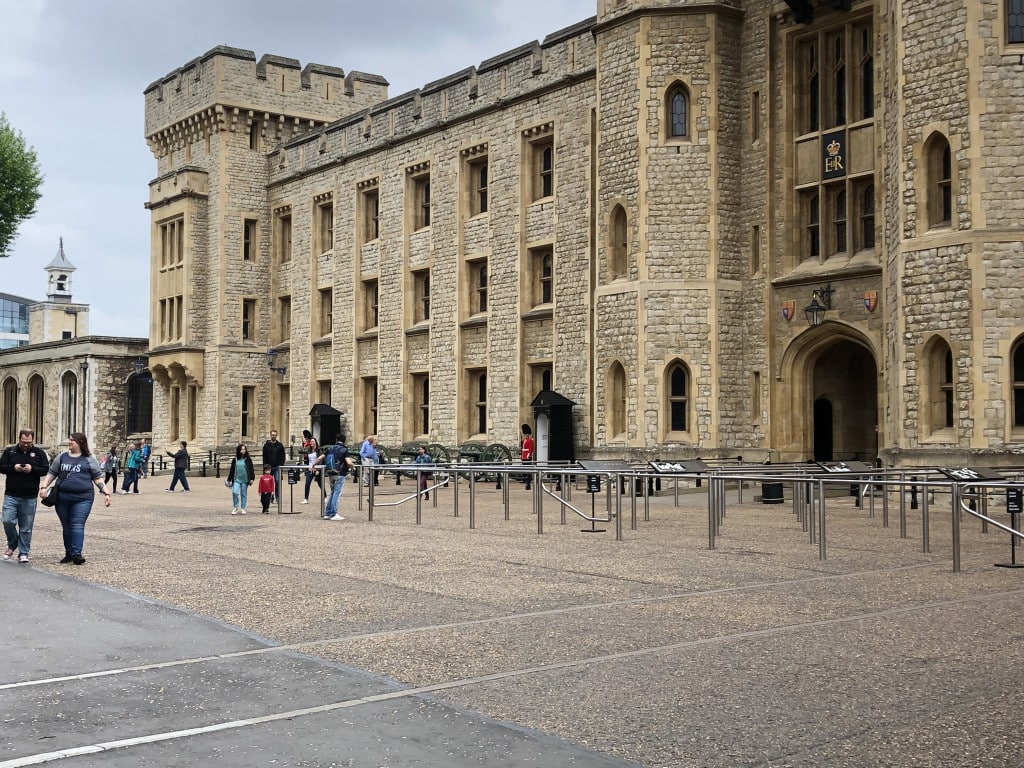
I had always assumed Anne’s state of mind on 19 May 1536 was as a result only of her renowned courage and her deep religious piety. Whilst these two factors were of undoubted significance, I have recently come across what I believe may be an even more convincing and comprehensive explanation for Anne’s appearance and behaviour.
Anne Boleyn’s Execution: Out of the Darkness…
In his excellent book, Out of the Darkness, the renowned transpersonal psychologist, Steve Taylor, gives a fascinating insight into a phenomenon which he calls, SITEs – Suffering Induced Transformational Experiences. As the name suggests, these are profound shifts in consciousness which occur usually as a result of an individual experiencing significant trauma or turmoil.
As I hope to describe in this article, there are some fascinating and tantalising indicators which suggest that at some point during her final hours on Earth – and facing the inevitability of her death – Anne Boleyn underwent such a transformation and this radically altered her state of mind. It is clear from Taylor’s account that individuals who have experienced such ‘high-intensity awakening experiences’ as he calls them, radiate an aura of profound peace. Was it this that the Portuguese witness saw in Anne Boleyn as she made her way to the scaffold?
However, before examining the evidence, we need to cover some basic psychological concepts in order to that we can make sense of what might have happened to Anne. We need to understand the psychology of the self and how intense trauma paves the way for SITEs to occur.
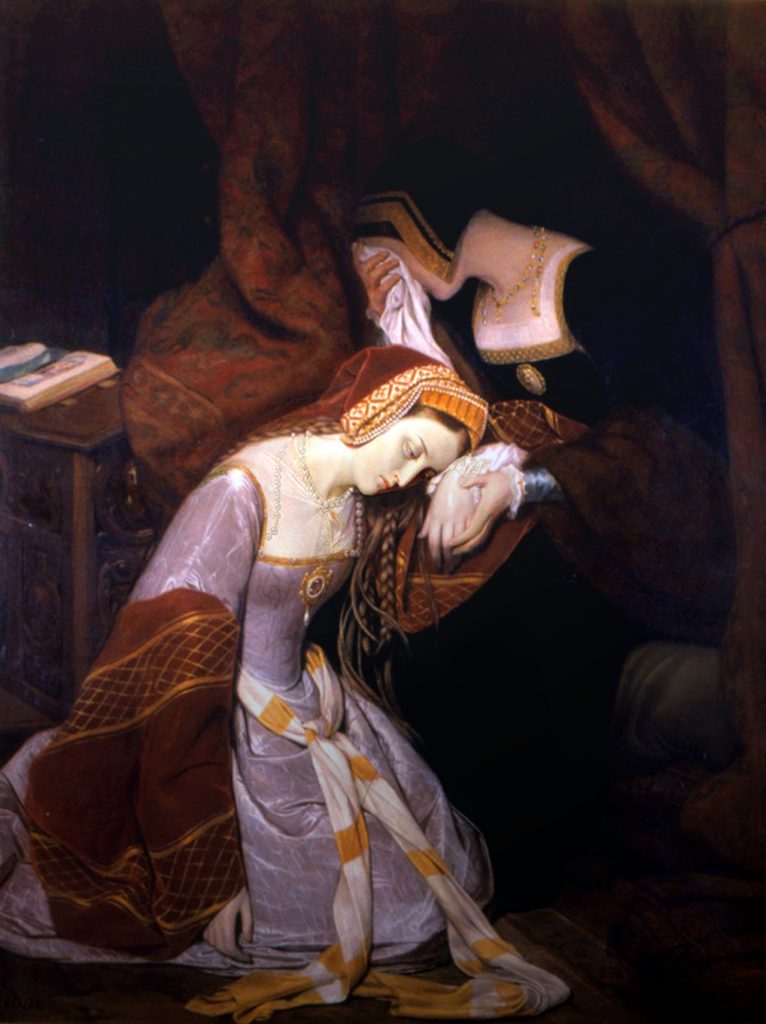
Understanding Anne Boleyn’s Transformation
Taylor describes that the self takes two forms; the ego, which is our conditioned sense of self, and a deeper, ‘real’ self, also known as the soul. The ego is a fragile concept. Through the accumulation of positions and possessions, we constantly seek to reinforce our sense of self through our status, wealth, plans and ambitions etc.; the more we have, the more we feel in control, and stronger and more secure our ego becomes. When any aspect of our sense of self is threatened, we usually experience fear on a scale that ranges from anxiety to terror, depending upon the extent of the threat which faces us.
Clearly, when an individual faces imminent death, as Anne did, this fear-based response becomes heightened to the extreme. When we face our demise, we are forced to confront the loss of our dreams, hopes, status, family, and friends etc. This can lead to a ‘psychotic breakdown’ (or nervous breakdown) of the type that was recorded in the case of Lady Rochford who went mad in the face of her own pending execution in 1542.
More unusually, a person may experience a ‘break up’ as the ego disintegrates and a new sense of self emerges; a sense of self which is fearless and profoundly peaceful. Facing her demise, Anne’s whole identity would have been swept away and as Taylor states, it is ‘at this point of devastation and desolation you are, paradoxically, close to a state of liberation’. In modern parlance, we call this ‘enlightenment’.
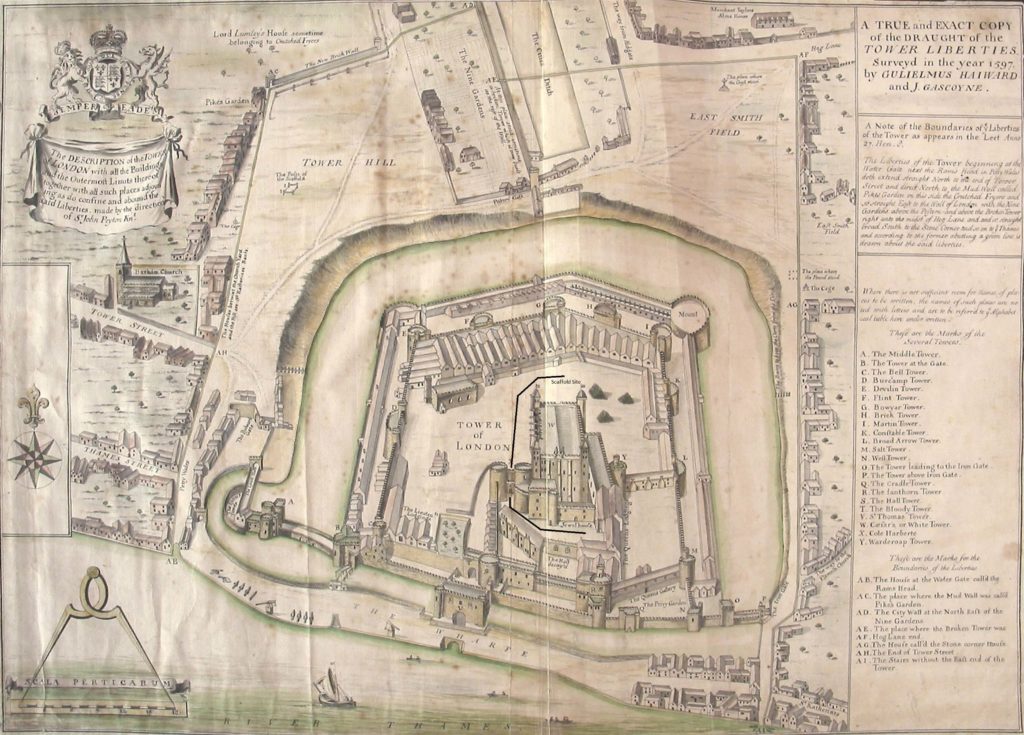
So what evidence do we have to suggest that such transformation occurred? As I have already mentioned, we know that at the beginning of her imprisonment, Anne suffered from periods of intense, fluctuating mood which, from time to time, bordered on near hysteria.
Yet by 18 May, Anne Boleyn’s execution was delayed for a second time and she was noted as saying to Master Kingston, Captain of the Tower of London, that it was ‘not that she desired death, but that she thought herself prepared to die’ (De Carles). It seems to me that Anne had reached a deep sense of acceptance and possibly genuine fearlessness, typical in such cases.
Finally, we’ve already touched on the accounts of eyewitnesses who described Anne’s peaceful countenance and radiant beauty. In fact, one account says that as Anne stepped onto the scaffold she was ‘as gay as if she were not going to die’. Again, this is characteristic of someone who has undergone a SITE.
What is also intriguing is the classical type of person that Taylor describes is most likely to experience a SITE. I think the parameters that he identifies closely describe what we know of Anne’s character:
- Individuals are often courageous and tend towards realism: We know that Anne was noted for her courage. As Ambassador Chapuys noted in 1530, she was, ‘braver than a lion’. We also often read of Anne being incredibly pragmatic, ready to face situations that arose head-on – and with no sense of squeamishness.
- The need to be in control. Anne lived in a world controlled by men. Yet, I believe she was an alpha female, who took her fate into her own hands and strove with great resolve to bring about that which she desired, (note the falcon on her badge, adopted after she became queen, which symbolises, ‘one who does not rest until the objective is achieved’). Part of the reason that Henry fell in love with Anne was, of course, her strong personality.
- ‘Right brainers’; i.e. people with a strong creative bent. We certainly know that Anne was incredibly creative. She enjoyed writing poetry, writing music, dancing and singing. Even in her dress, it was noted that she ‘everyday make some change in the fashion of her garments’ (Wyatt, Papers, v.p.141) Taylor suggests that such individuals have an intuitive personality and are highly emotional. This predisposes them to an intense response to trauma. There is plenty of evidence of Anne’s intemperance and that she was highly strung.
- Finally, gender also plays a part. Women are more likely to experience SITEs in relationship to bereavement, illness and disability. Anne was not only facing her own death but two days prior to this had possibly witnessed the execution of her own brother. She certainly knew of it. In her own death, she also faced separation from her beloved daughter, Elizabeth. Taylor states that women, on the whole, have a weaker sense of ego – and therefore, it is more vulnerable to being blown apart by severe trauma.
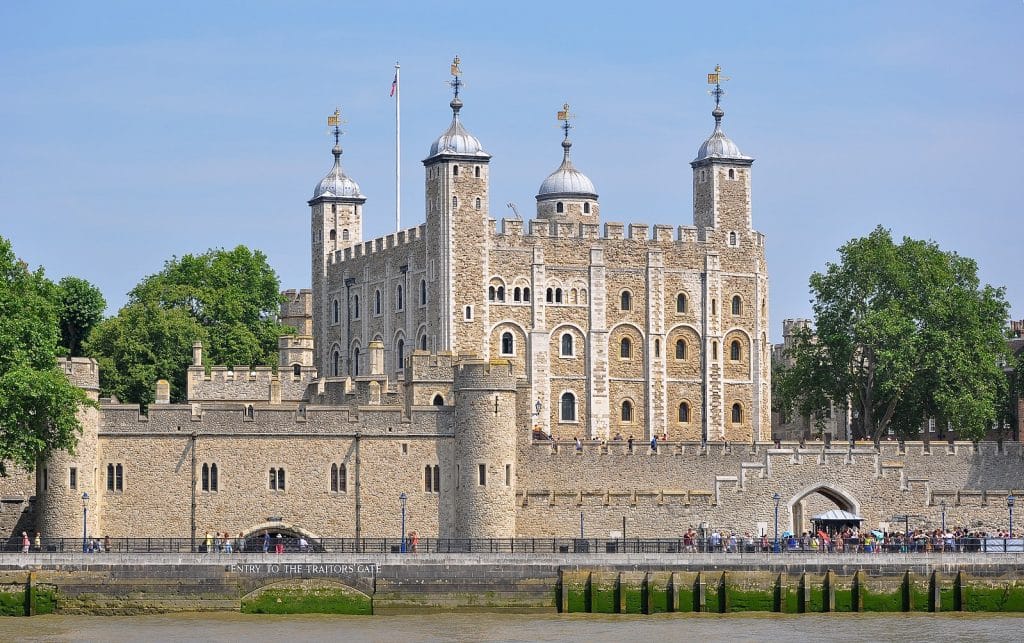
Of course, this is a theory that can never be proven. However, given these predisposing factors and what we know about eyewitness accounts of Anne’s state of mind in the run-up to, and immediately before, her execution, I think it is worthy of consideration that something profound and amazing happened to Anne Boleyn in those final few days and hours. So that, to use her own words, she was able to say to the Constable of the Tower, Master Kingston, when he came to inform her that the hour of her death was upon her, ‘Acquit yourself of your charge for I have long been prepared’.
Whether Anne experienced the highest intensity awakening experience possible or a partial but significant shift, I do not know. However, as the anniversary of her execution approaches, I would like to think that Anne walked to her death a more fully liberated woman, and at last, having found a profound sense of peace.
It is something that we can hold onto during these dark weeks running-up to Anne Boleyn’s execution. I hope that with the possibility in mind, you and I, and all those who hold Anne in their hearts can be inspired by her example and live more fearlessly – for what greater legacy could she leave us?
Note: For a full explanation of the SITE phenomenon see, Out of the Darkness: From Turmoil to Transformation by Steve Taylor. 2011. HayHouse.

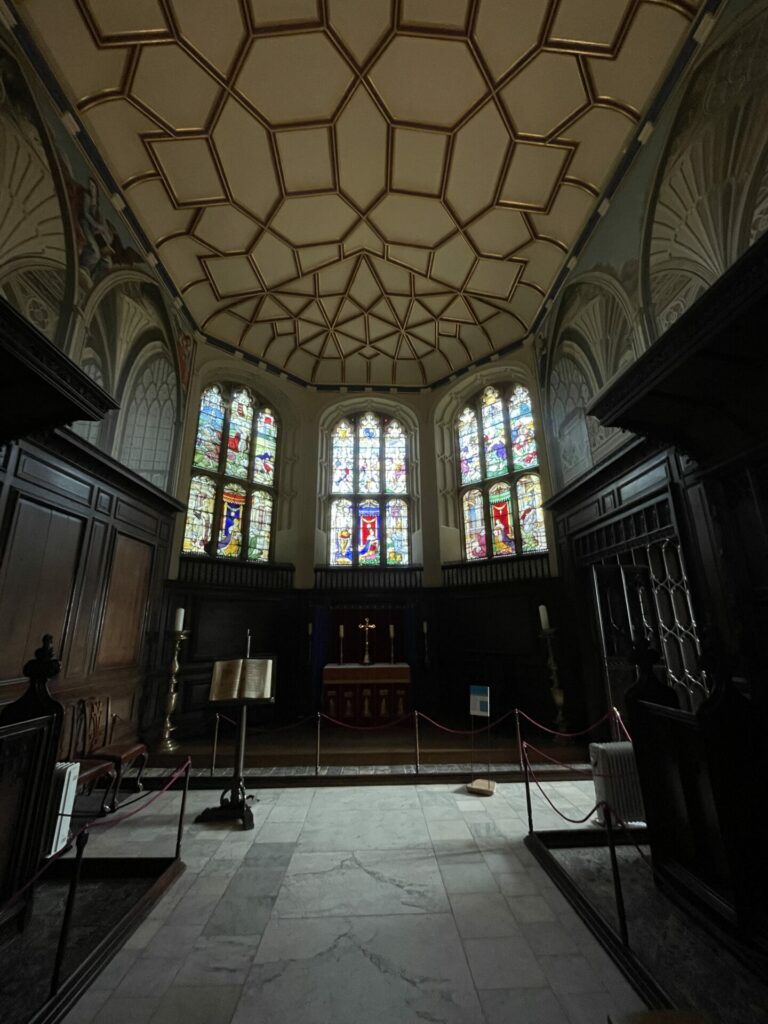

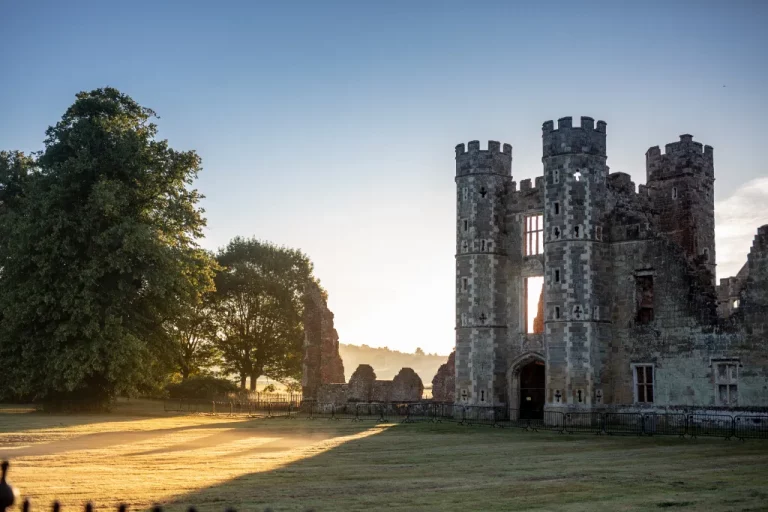
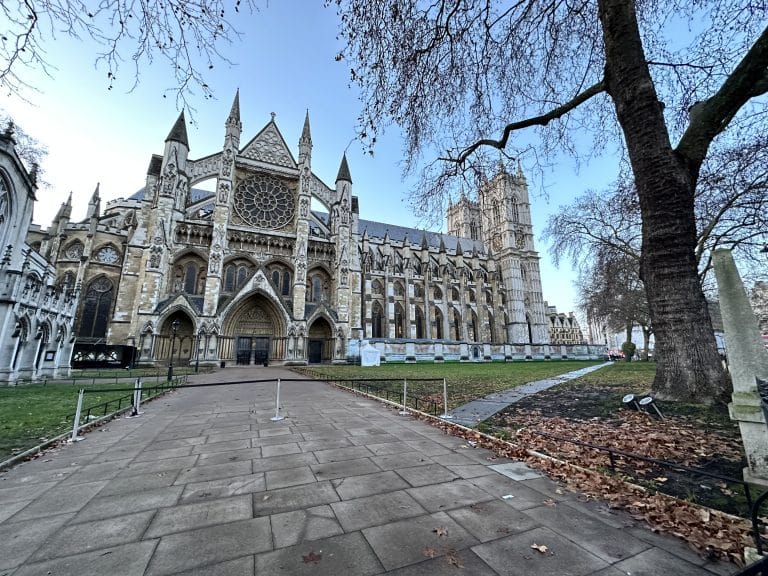
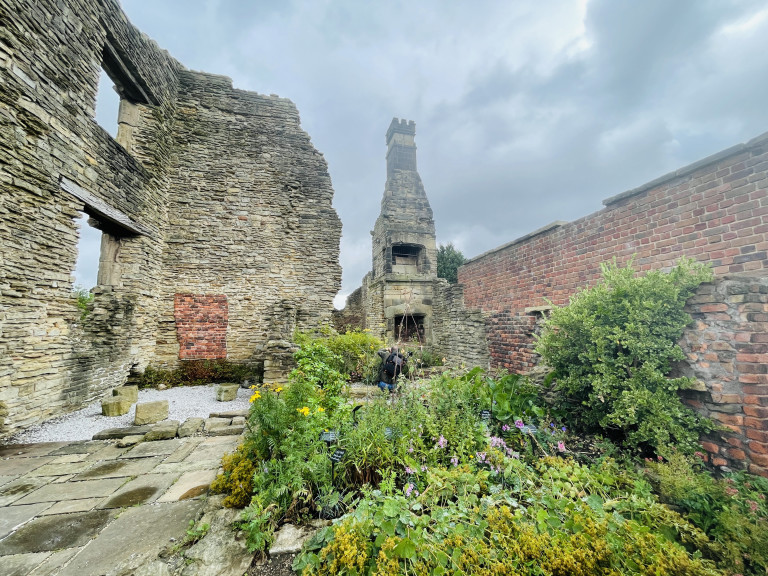
Makes perfect sense to me, facing such an end the mind is an amazing thing. Thank you for posting
Hi Elizabeth, Thank you for reading and taking the time to comment! Really glad you enjoyed it. Sarah
I enjoyed this article very much and as much as I to find Anne Boleyn intriguing and read as much as I can about her I also feel we must not forget the innocents who were put to death on both her and Henry’s say so they to would have been frightened and afraid beyond belief there families tore apart worth remembering these poor people as well
I agree, Anne was a real mixture, & fascinating.
Poor is poor, whether you come from privilege or not. The poor had nothing to lose. The privileged lost a great deal when they were stripped of everything that gave them notoriety and wealth which could be given and stripped away due to the slightest uncertainty or less than fact based information.
People would drop the bomb on others, simply to strip away the favor and importance that was given to thise of great rank and privilege, out of jealousy and/or own personal gain.
I agree, the night before my beloved late husband’s funeral I felt a strange mixture of peace mixed with sadness, I also wanted to look my best, & carefully had planned hair, outfit etc, also a beautiful service & wake afterwards at home.I grieved, but got on with my life, as he’d wanted me to. Fifteen years later, I still miss him terribly, I live my life fully, with many happy memories of our 41 years together, tinged with sadness at the loss. Emotions can blend. Vron
“The fault lies not in our stars, but in ourselves.” So spake Cassius in Shakespeare’s play.
Henry VIII Tudor publicly behaved in a manner that in today’s society would have him be classified as a predatory serial murderer. His failure to sire a male heir was due to his own shortcomings, from a life of violent play and excess.
The choice of a French swordsman to murder his wife was a form of mercy, as the axe typically used was notoriously hard to wield accurately, often striking the skull instead of the neck and requiring several blows to complete the beheading.
Henry VIII Tudor died horribly. Justice served for many.
Such a beautiful article, it certainly does leave one with a glimmer of hope.
Must admit I’ve never heard of this but it does make sense . She probably realised knowing Henry that there was no chance of a reprieve from the sentence given . She was also very religious and knowing she was dying innocent to the charges ,she would be going to heaven a martyr. Thus damming Henry forever . In her death was her salvation
From what I have been reading on Anne Boleyn she was a brave and remarkable queen God rest her soul sleep tight .
To me, she completely stands out for her courage. A bit of a role model in that department for me. Thanks for posting!
I have always had an interest in Tudor history. Have read many a book of any and all of this period that I could research. I have been fascinated by the six wives of Henry the viii and their fate, all because the king Henry Himself was the cause medically, that he couldn’t produce an heir.
I feel Anne in her bravery an courage knew or at least questioned; why it may be Henry that couldn’t have sons. Like wise Anne, in her heart believed her daughter would be queen eventually.
I’ve read about this phenomenon but never connected it to the accounts of Anne. Thank you for putting these thoughts together for us. I like the idea of her having this transformational experience and going to her fate truly at peace.
Thanks for reading, Susan!
To those who die In Christ, I truly believe, there is a peace that pass s understanding. To die in Christ is gain. She knew. Sh e was involved in The Reformation.
As the 2nd wife, there was no way Anne could have known how dangerous it would be to marry Henry. Accused of treason, adultery, and even incest, she even had to watch those men executed before her. I pray she had the comfort of knowing that her child would be safe. I’ve seen Henry’s grave. He deserved his end, his suffering, and his place on Judgment Day. We still care for her today. No one grieves for Henry. Despite his evil actions, it was Anne’s daughter who became Elizabeth I.
A beautifully and intelligently written perspective. Many thanks! x
Hi Lucy, Thank you so much for this. That is really kind. Great to see you and your work on TV this week! That was fabulous. Well done!
This. I love this. I have always looked at her, in her final hours, as a beacon of strength and hope. There’s strength in the acceptance of the inevitability of death – regardless of whether or not one is a believer. We can only hope that we face death with such strength.
So delighted you enjoyed this so much. I draw strength from her example all the time. I couldn’t agree more with what you have said.
nice article veryy beatiful thanks 🙂
Thank you!
It just goes to show what an evil b Henry the eight was
I think it is such a shame that she had to die that way, when king Henry VIII condemned her to be executed, he really didn’t need to bother if he wanted her out of the way, then why didn’t he just tell her face to face rather than poor Anne Boleyn having to face something that should of never happened in the first place. I am sorry to say but I think King Henry VIII was very cruel to her in sentencing her to death like that, I have read about her execution and what she supposingly did which lead to her execution, but after reading her demise I found out that she never committed those crimes in which she was executed for. She could of lived another 100 years, I feel so sad for her, l didn’t know the full crimes until now. I praise her for being such a wonderful and courageous person as Queen Anne Boleyn. She never had the opportunity to see her daughter Queen Elizabeth I grow up and that is a real shame. I think that Queen Elizabeth I and her mother Queen Anne Boleyn would have had a loving relationship as mother and daughter and I think this is most important in this day and age, as Queen Elizabeth I was only very young when her mother was taken from her, and I know for a fact that losing your mother is nothing to be sneezed at, as I have lost my mother only last year from a massive bleed on the brain and I can tell you that I miss my beloved mum every minute of every day and to loose one parent is horrific as I had witnessed my mum’s passing and probably like Queen Elizabeth I she would of learnt of her mother’s death and most probably traumatised by it. I praise you Queen Anne Boleyn and I feel for you not being able to see your daughter grow up may you rest in peace.
SO very sorry, thinking of you.
I think that her actually being a real Christian, God gave her a peace that passed all understanding and she knew where she’d be the moment she lost her head and that being “with the Savior forever more”. She was the beginning of the English Reformation! No one could understand that at this time especially Roman Catholics nor the Church of England in its infancy. Her religious beliefs taught her to not concern herself with the time of her death because she was ready when it would overtake her.
Henry VIII really destroyed many lives especially those close to him. Look how his children turned out! Queen Mary I ,England’s first queen regnant ending being called bloody Mary and Elizabeth’s famous drawing and quartering , Edward VI executing two maternal uncles!
Old retired big city cop here (and US Marine at age 17), and I have seen death in many different ways. Aside from the possibility of pain the “best” death is dying quickly, and the quicker the better… better even if death comes without advance notice. Absent the aforementioned, if death is not immediate then the question of fear and pain come into play, as well as the inner strength of the person dying. After all is said and done very few of us actually plan our death, so here’s hoping that when out time comes (irrespective of heaven or hell in the mix) let’s hope that we are lucky enough to just fall asleep and not wake up. Semper fi and hand salute!
Anne Boleyn is my spirit woman. I have read a lot about her and this article confirms a lot of what I have read. Anne was a woman ahead of her time and ultimately she was killed for the same reasons that Henry fell in love with her in the first place. She was strong, outspoken, courageous, and knew what she wanted. Henry put her in an impossible position when he started pursuing her and she made sure that she wasn’t going to become just another notch on his ever-increasing belt.
She went to her death in the way she loved. With bravery and courage. And let’s not forget that she was the mother to one of our greatest queens. Henry may have wanted a son but Anne gave him Gloriana.
I love this! So well put.
A very interesting perspective. Thank you for giving us this hope when we think of Anne’s final days.
It is interesting to speculate on strategies Anne Boleyn might have employed to avoid her fate. But the sad truth is that she was manipulated by powerful men throughout her life, and in the end she paid the ultimate price for remaining true to her principles. She was much more courageous and principled than the cowards who engineered her untimely demise. Rest in Peace, Queen Anne.